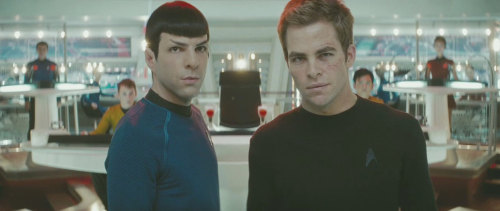I saw Iron Man the other day. I enjoyed it, but don’t have enough to say about it to warrant a full review. Suffice to say it reminded me a lot of the first Spider-man film; well-written, with good characters and performances and a healthy sense of conviction in the exercise by all involved, but at the same time lacking the really big show-stopping scenes that would have made it more memorable (the climax is really just two guys in metal suits punching each other.) It made me think of these comments by Paul Rameker in an article I’ve linked to before, over at David Bordwell’s page:
I have a theory. In the contemporary comic-book blockbuster, the sequels will always be better than the first entries. Spider-Man 2 is better than Spider-Man, X-Men 2 is better than X-Men, and I will bet that The Dark Knight will be better than Batman Begins, just as Batman Returns was better than Batman. The pattern seems to me to be that the first film in the series is relatively impersonal – the franchise must be established as a franchise, meaning that few boats will be rocked, and the director must prove that they can handle both a film on that scale, and can be trusted with the property with all the investment it represents.
But once they’ve done so, in the above cases where the first films enjoyed significant economic (and critical) success, the directors are given a bit more leeway, are allowed to drive the family car a little further and a little faster. In each case, the second film in the series by the same director has been significantly more idiosyncratic. Batman Returns has much more of Burton’s sense of humor and interest in the grotesque; X-Men 2 is a much more serious and ambitious film narratively and thematically, more obviously the product of a prestige filmmaker (Singer’s never been an auteur by any stretch, so that will have to do). Spider-Man seemed sort of anonymous in terms of style, but Spider-Man 2 had a much more extensive and playful use of classic Raimi techniques: short, fast zooms; canted angles; rapid camera movements; whimsical motivations for techniques, like the mechanical-tentacle POV shot (virtually a repeat of his flying-eyeball POV from Evil Dead 2).
I would second all that and also add that these days, the sequel will get more money spent on it than the original; this and the more straightforward stories allowed once the “origin” story is out of the way means the second film in a series can usually be more action-focused. (Yes, this is a good thing.) The old idea that sequels gradually fade away in terms of quality should be considered completely dead, at least as far as first sequels go; third films in series remain much dodgier propositions.
Continue reading →
